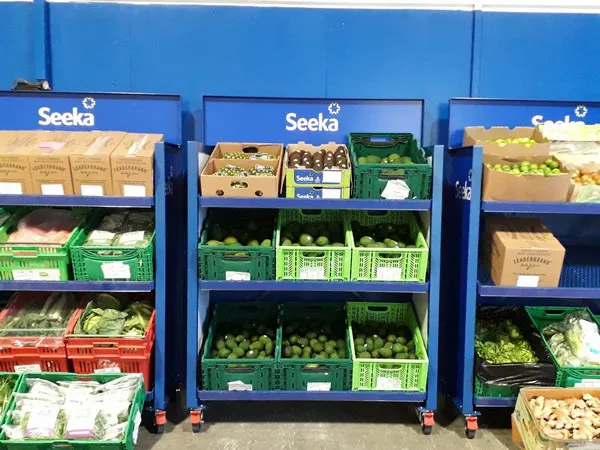Although Covid-19 has remained relatively under control in New Zealand, the pandemic has had an effect on the fresh produce business in this region. Some categories have suffered during Covid related lockdowns, like avocados, while other fruits such as kiwifruit and citrus have performed better than expected, supported by strong export opportunities. But the pandemic has also shown exporter and wholesalers new paths to increasing efficiency and improving on health and safety protocols.
According to Aaron Leslie, sales and business development manager for Seeka’s New Zealand wholesale operations, panic buying during the early days of Covid led to a sudden increase in demand, but this only lasted for a short while: “Once the Government of New Zealand declared we were going into lockdown level 4, we experienced a dramatic change in our business. The day following the announcement there was panic buying and we struggled to keep up with the requirements of our retail and independent customers who were working hard to satisfy consumer demand. Conversely, on the first three to four days of the lockdown, our fresh produce wholesale business fell to all-time lows in terms of turnover and demand and we had to adjust quickly. Consumers had stocked up and were reluctant to leave their homes for further purchases.”

“Some key categories became very difficult. Demand for avocados, considered a luxury item during lockdown, dropped so low that we stopped picking in the orchards. In terms of adjusting, we did a lot to keep the wholesale fresh business in a positive space. We focused on our key customers that were still able to trade and stocked the key lines demanded by consumers, in particular hard vegetables, such as potatoes, carrots and onions.. We also focused on the health and safety of both our team and our customers in the midst of the Covid-19 regulations.” Leslie explains.
By the end of lockdown, Seeka had improved their wholesale market operation’s efficiency and safety for staff and customers. ,Leslie states: “When we gradually shifted out of lockdown and into a more normal trading space, we found that there was a lot of improvement for the business in the operational area, like continuing to reduce customer foot traffic on the market floor. By that time we also had a broader spectrum of customers, especially in the home delivery and online sectors.”

Covid presents a mixed bag for New Zealand produce overall, as some products are suffering while others are performing better than expected according to Leslie. “Foodservice was hit hard and quickly in lockdown. Many larger customers wanted to return stock the week of lockdown level 4, as their customers were forced to close the doors. We still haven’t fully recovered, some categories were hit harder than others. For the main part in retail things are back to normal, but growers are facing labour issues for picking and packing crops as Covid border restrictions mean that workers from abroad who are usually available under New Zealand’s RSE (Recognised Seasonal Employer) schemes, are not available. , On the flip side, we have seen certain produce categories perform better than expected. Kiwifruit and citrus are doing well, as customers look for vitamin c and healthy options to ward-off sickness.”

Even now, about six months post the level 4 national lockdown, the fresh produce industry in New Zealand faces challenges related to the pandemic. “It’s a spring seasonal space right now for New Zealand, which means asparagus, berries, tomato, cucumber and capsicums are in good supply. At the moment, there are some difficulties transporting fresh produce, as costs are significantly up for airfreight and not all commodities can be sea freighted. There are delays with sea freight as well and we will see some negative impacts for local growers due to this. We expect some categories to be flush with volume, due to a lack of export options. However we now expect all categories to do well as customers are not travelling overseas, and they are looking to quality fresh produce as part of the simple pleasures at home and for local events.” Leslie concludes.
 For more information:
For more information:
Aaron Leslie
Seeka
Tel: +64 21 918 071
Email: Aaron.Leslie@seeka.co.nz
www.seeka.co.nz

